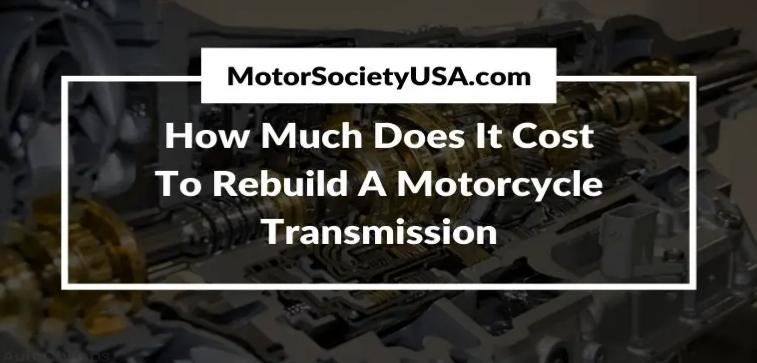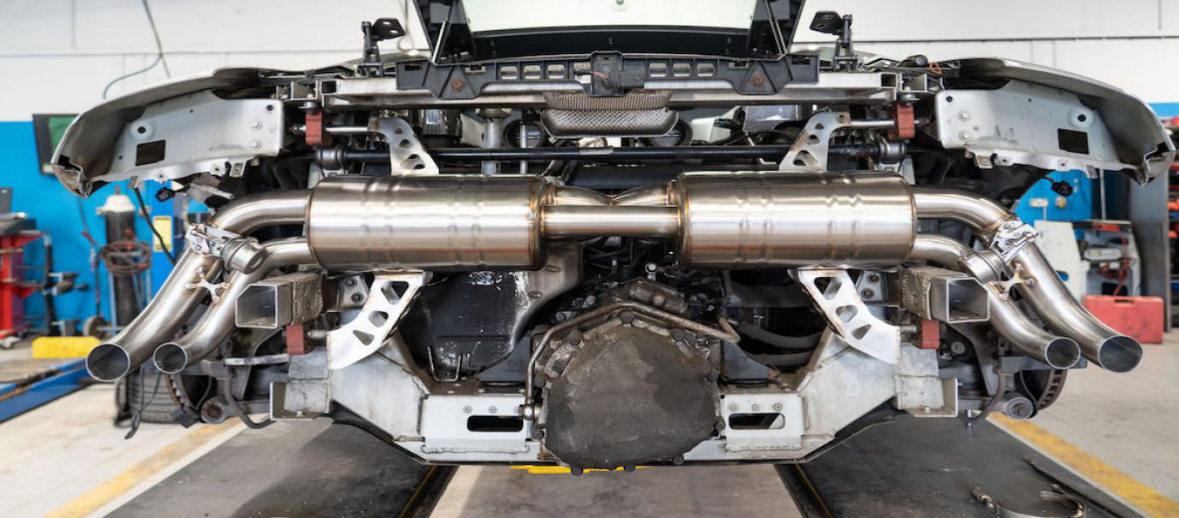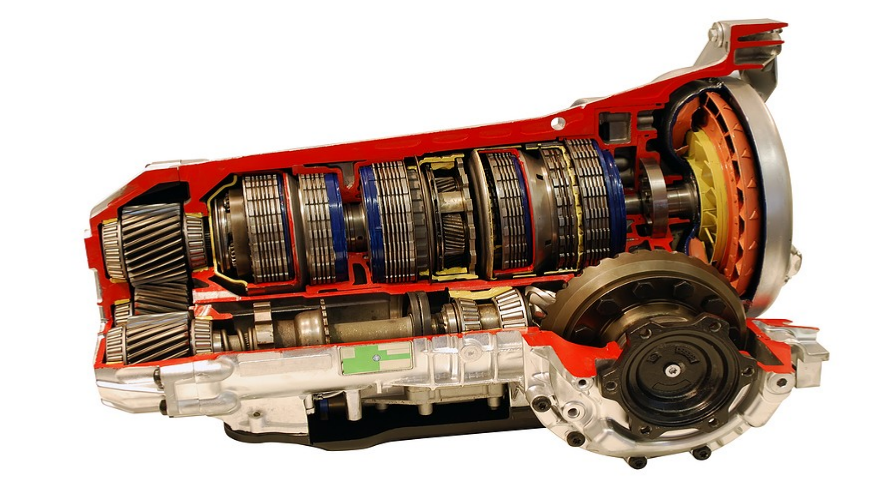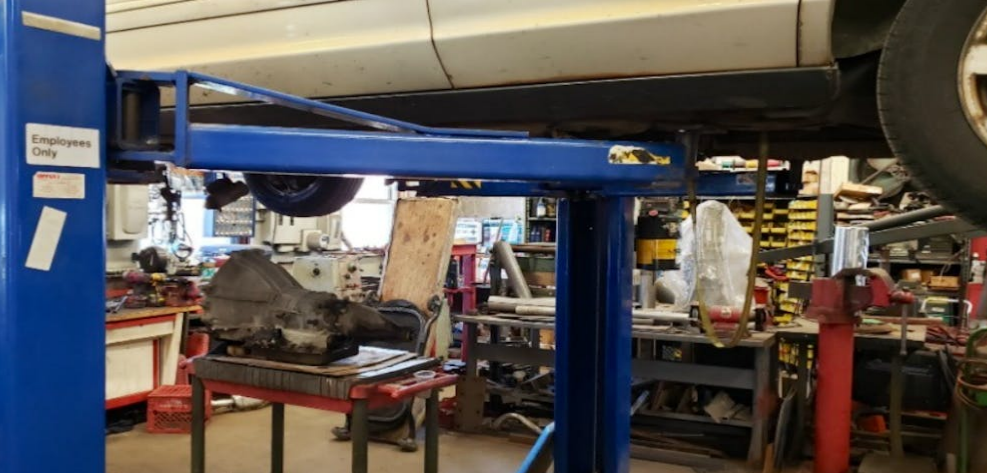The cost of transmissions varies widely, typically ranging from $1,000 to $6,000 based on factors like type and brand.
Factors Affecting the Cost of Transmissions
When considering the cost of a transmission, various elements come into play. From the type of vehicle you own to the kind of transmission system you desire, each factor has a unique price point associated with it. Below, we break down these variables in detail, offering insights into their specific impacts on overall transmission expenses.

Type of Vehicle (Car, Truck, SUV, etc.)
Different types of vehicles demand different types of transmissions. A standard car may use a simpler transmission system than a heavy-duty truck. As an example:
- A typical sedan might have a transmission cost ranging from $1,000 to $3,000.
- In contrast, heavy-duty trucks, given their need for stronger transmission systems to handle larger loads, can see prices between $3,500 and $5,000.
For a deeper dive into specifics, you can refer to the Vehicle Type and Transmission Costs section on Wikipedia.
Manual vs. Automatic Transmission
The age-old debate between manual and automatic transmissions isn’t just about driving preference; it’s also about cost.
- Manual transmissions, traditionally less complex, can cost between $1,500 to $3,000.
- Automatic transmissions, which offer more convenience but are more intricate, range between $2,000 to $4,000.
More on this topic can be found on Automatic vs. Manual Transmissions on Wikipedia.
New vs. Refurbished or Rebuilt
While a new transmission ensures peak performance and often comes with a warranty, refurbished or rebuilt options can offer significant savings.
- New transmissions might cost anywhere from $2,500 to $4,500 depending on the vehicle and brand.
- Refurbished or rebuilt transmissions, which are older units restored to working condition, can be a more affordable option, often between $1,000 and $2,500.
For those considering refurbished options, this Refurbished Transmission guide is a handy resource.

Brand and Quality
Like any product, brand reputation and quality matter. Trusted brands might offer higher prices but guarantee longevity and performance.
- Economy brands might range from $1,000 to $2,500.
- Premium brands, known for their superior quality and durability, could cost from $3,000 upwards.
Explore popular transmission brands and their histories on Wikipedia’s Transmission Brands Overview.
Labor Costs for Installation
The hardware is only one piece of the puzzle. Installing a transmission is a complex task that requires skilled labor, and this expertise doesn’t come cheap.
- For most standard vehicles, labor costs might range between $500 and $1,200.
- Specialized or luxury vehicles might demand a premium service, with labor costs going upwards of $1,500.
For a better understanding of installation processes and why they’re crucial, check out this Transmission Installation Guide on Wikipedia.
Transmission Pricing by Vehicle Make and Model
The cost of a transmission can vary significantly based on the make and model of a vehicle. This is largely due to differences in engineering, brand reputation, and the target market for each vehicle. Let’s delve deeper into the pricing variations among popular sedans, SUVs and trucks, luxury vehicles, and sports cars.
Popular Sedans
Sedans, often hailed as the ‘family car’, are generally engineered for comfort and efficiency. Their transmissions, therefore, are designed with these considerations in mind.
- For a Toyota Camry or Honda Accord, you might expect to pay between $1,800 to $3,200 for a new transmission.
- Sedans like the Ford Fusion or Chevrolet Malibu might hover in the $1,700 to $3,000 range.
For more specifics on sedan transmission systems and their costs, consult Wikipedia’s Sedan Section.

SUVs and Trucks
Given their size and capability to handle rough terrains or heavy loads, SUVs and trucks often require more robust transmission systems.
- SUVs like the Jeep Grand Cherokee or Ford Explorer may see transmission prices from $2,500 to $4,500.
- Trucks such as the Ford F-150 or Chevrolet Silverado can expect a range of $2,800 to $5,000.
Interested readers can find more on SUV and Truck Transmissions on Wikipedia.
Luxury Vehicles
Luxury vehicles, designed for optimal performance and a superior driving experience, often incorporate advanced transmission systems. This sophistication, understandably, comes at a higher cost.
- For brands like BMW 7 Series or Mercedes-Benz S-Class, transmission costs can range from $4,000 to $7,000.
- Audi A8 or Lexus LS might be priced between $3,500 to $6,500 for their transmissions.
For an in-depth understanding of luxury car engineering, here’s a resourceful link to Luxury Vehicles on Wikipedia.
Sports Cars
Built for speed and performance, sports cars employ specialized transmission systems to ensure seamless gear shifts and maintain high speeds.
- Sports cars like the Chevrolet Corvette or Porsche 911 might command transmission prices between $5,000 and $8,000.
- For the likes of Ford Mustang or Dodge Challenger, you could be looking at $4,500 to $7,500.
To understand the mechanics behind sports car transmissions, one can check out Sports Cars on Wikipedia.
The Process of Transmission Replacement
Replacing a transmission is no small task, and it’s essential to approach it with adequate knowledge and preparation. Here’s a detailed walkthrough of recognizing when your transmission needs replacement, selecting the ideal service provider, and understanding the replacement procedure and timeline.
Signs Your Transmission Needs Replacement
Before even considering a replacement, you must identify the signs that your transmission is failing. Some of the most glaring indicators include:
- Grinding or strange noises when in gear.
- Gears slipping or difficulty shifting.
- Delayed or rough gear engagement.
- Unusual fluid leaks or the transmission warning light turning on.
For a deeper understanding of transmission issues and their symptoms, refer to the Transmission Troubleshooting Guide on Wikipedia.
Choosing the Right Mechanic or Service Center
The key to a successful and cost-effective transmission replacement lies in selecting the right service provider. Here’s what to consider:
- Reputation: Look for online reviews or ask for recommendations. A highly-rated mechanic or service center usually means quality service.
- Experience: Opt for centers specializing in transmission work or with extensive experience in the field.
- Warranty: Ensure they offer a warranty on their work, which can be vital if issues arise post-replacement.
- Pricing: Get quotes from multiple service providers. While you don’t want to choose the cheapest blindly, being informed helps avoid being overcharged. On average, labor costs can range from $500 to $1,500 depending on the complexity.
You can also review the List of Accredited Transmission Service Centers for reputable options.
The Replacement Procedure and Timeline
Understanding the steps and time involved in a transmission replacement helps set expectations and ensures a smooth process:
- Initial Diagnosis: Before replacement, a thorough diagnosis determines if a full replacement is necessary. This can take a few hours.
- Removal of Old Transmission: The mechanic will drain the transmission fluid, disconnect all linked components, and remove the faulty transmission.
- Installation of New Transmission: The new or rebuilt transmission is then installed, and all components are reconnected.
- Testing: After installation, the mechanic will test the vehicle to ensure the new transmission operates without issues.
- Final Touches: The transmission fluid is refilled, and any final adjustments are made.
Typically, the whole replacement process, from diagnosis to completion, can take between 4 to 10 hours, depending on the vehicle and any unforeseen challenges.
For more about the technicalities of the replacement procedure, consider checking the Transmission Replacement Procedures section on Wikipedia.
Maintenance Tips to Extend Transmission Life
The longevity of your transmission system largely depends on how well you maintain it. Proper care and preventive measures can not only enhance performance but also save you significant expenses in the long run. Here are some pivotal maintenance steps to help extend the life of your transmission.
Regular Fluid Checks and Changes
Transmission fluid plays a vital role in lubricating the system, preventing overheating, and ensuring smooth gear shifts. Here’s what you need to know:
- Check Frequency: It’s wise to check the transmission fluid level and its condition every month.
- Change Intervals: Depending on the make and model of your vehicle, fluid changes should occur every 30,000 to 60,000 miles. Some modern synthetic fluids can even last up to 100,000 miles.
- Cost Factor: While checking the fluid is free if done personally, a professional fluid change can range from $80 to $250, depending on the vehicle and type of fluid.
More on transmission fluid and its importance can be explored on Wikipedia’s Transmission Fluid Section.
Avoiding Strain on the Transmission
Protecting the transmission from undue stress is paramount. Here’s how you can minimize strain:
- Avoid Rapid Starts and Stops: Abrupt accelerations or halts can wear out your transmission faster.
- Use Parking Brakes on Inclines: This prevents the car from rolling back and putting pressure on the transmission.
- Tow Within Vehicle Limits: Overloading your vehicle or towing beyond its capacity can overheat and damage the transmission.
For more strategies on how to prevent undue strain, you can refer to Vehicle Handling and Maintenance Tips on Wikipedia.
Recognizing Early Warning Signs
Being alert to early symptoms of transmission issues can prevent more significant problems. Here’s what to look out for:
- Unusual Noises: Grinding sounds or clunks when shifting are often red flags.
- Delayed Response: If your car hesitates before moving or doesn’t shift smoothly, it could indicate transmission issues.
- Warning Lights: Modern cars come equipped with transmission warning lights. Don’t ignore them!
Early intervention based on these signs can save hefty repair costs in the future. For an in-depth list of signs and what they might mean, delve into this Transmission Troubleshooting Guide on Wikipedia.
Alternatives to Complete Transmission Replacement
A failing transmission doesn’t always necessitate a full replacement. There are several alternative solutions that can effectively address transmission issues, potentially saving both time and money. Let’s explore these alternatives, evaluating their viability, benefits, and costs.
Transmission Repair vs. Replacement
When faced with transmission issues, understanding the distinction between repairing and replacing is crucial:
- Repair: This involves fixing specific components of the transmission system without replacing the entire unit. Common repairs might include fixing leaks, changing solenoids, or replacing worn-out seals.
- Cost Factor: Depending on the extent of the damage, transmission repairs can cost anywhere from $150 to $2,000.
- When to Consider: If the damage is localized and the rest of the transmission is in good shape, a repair might be the best route.
For a comprehensive breakdown on repair versus replacement, the Wikipedia page on Transmission Mechanics is a valuable resource.

Benefits of Rebuilding a Transmission
Rebuilding involves disassembling the transmission, replacing damaged components, and then reassembling it. Key advantages include:
- Cost Efficiency: Rebuilding is often cheaper than a full replacement, especially if only a few parts need changing.
- Customization: During rebuilding, you can opt to upgrade certain components for better performance.
- Environmental Impact: By reusing many parts, you reduce waste and the environmental footprint.
- Cost Factor: The average cost for rebuilding a transmission can range from $1,500 to $3,000, depending on the vehicle and parts used.
For those interested in the technicalities of rebuilding transmissions, Wikipedia’s article on Transmission Overhauls provides insightful details.
Upgraded Transmissions and Their Costs
Upgraded or performance transmissions are designed for specific tasks like racing or heavy towing. Some benefits and considerations include:
- Enhanced Performance: They offer smoother shifts, can handle more torque, and often have better cooling systems.
- Durability: These transmissions are built to withstand extreme conditions, often outlasting standard models.
- Cost Factor: Upgraded transmissions are pricier, typically ranging from $2,500 to $10,000, based on the level of performance enhancement.
To delve deeper into the world of high-performance transmissions, a visit to Wikipedia’s Performance Transmission Section is recommended.

